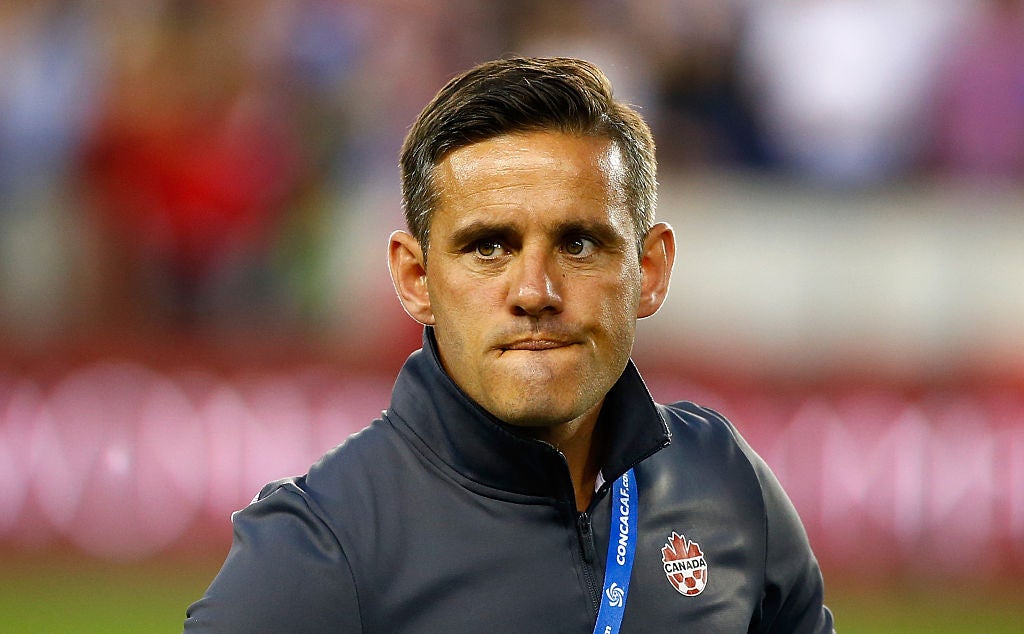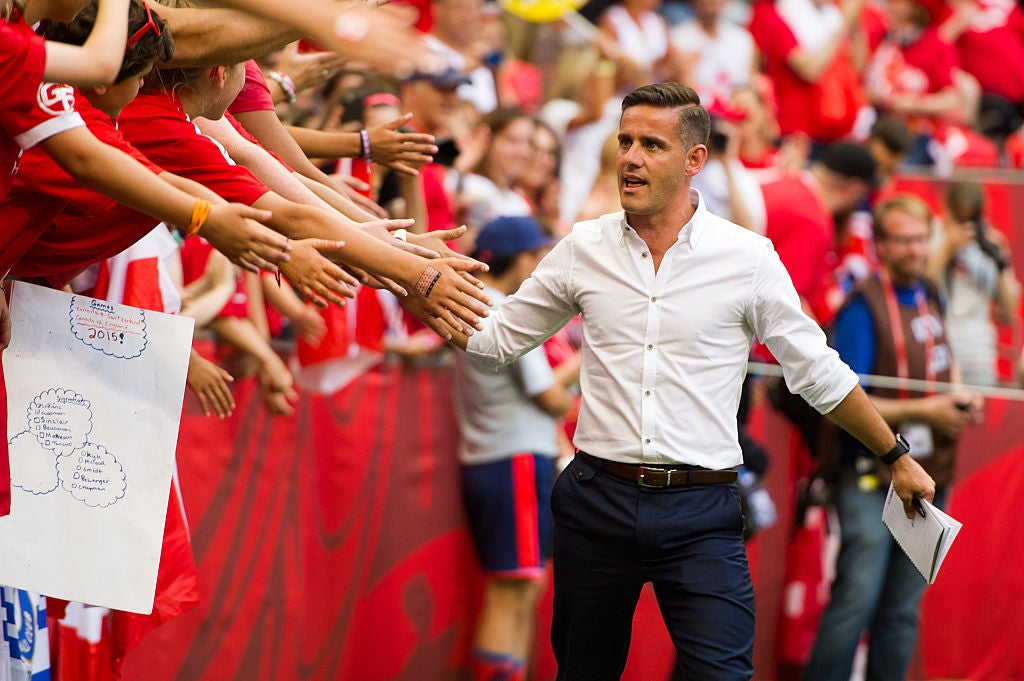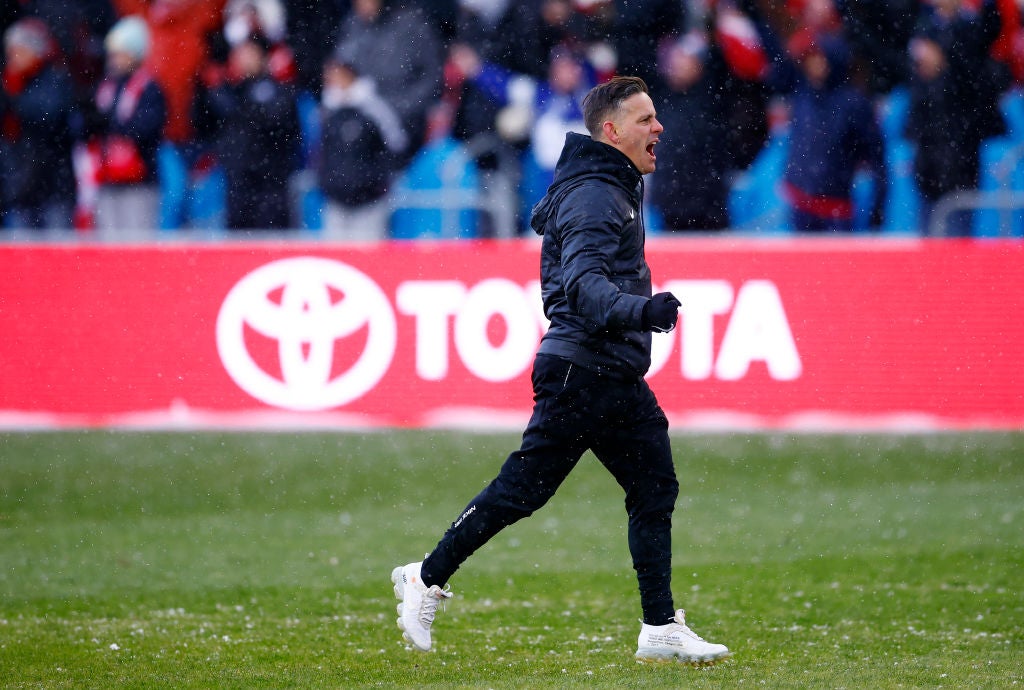
It’s the summer of 1986 and excitement is building in two very different part of the globe.
In Canada, the country is preparing for its first ever World Cup finals, under the guidance of an English manager, Tony Waiters, who narrowly missed out on selection for his country’s World Cup squad in 1966.
In the North East, there’s a similar sense of anticipation as a budding 10-year-old footballer busies himself with the task of completing his 1986 Panini World Cup sticker album.
England’s players are given the large sticker treatment, with the likes of Gary Lineker and Peter Shilton afforded full squares in the album. Canada's players, meanwhile, assume the role of second-class citizens, their players squeezed into Panini pairs on the page.
“Something about it didn’t seem fair,” says John Herdman, laughing. It may have taken 36 years, but the Consett-born coach and a team that ultimately romped to qualification for Qatar now have the opportunity to prove that their current crop are anything but second-rate on football’s global stage.
For a man who never kicked a ball in the Football League, and for a team which a decade ago saw their 2014 World Cup dreams ended by an 8-1 defeat to Honduras, it’s a fairytale. All they need to do now is bring that qualifying form into the tournament itself.
Herdman, who worked at Sunderland’s academy and with Hartlepool before heading to work in New Zealand in 2008, hopes that everything he has achieved across the Atlantic brings hope to others who failed to make the grade as players.
“It has been really nice, a really heart-warming experience, hearing from people that you haven’t heard or seen from for a long time,” he says. “I keep telling people, no matter how many times you get told, you won’t, you can’t, there’s always a way if you’re willing to take the risk and put the work in.

“I remember coaching at Sunderland and someone praised me for the work I was doing but then, in the same breath, mentioned that I would only ever go so far because I hadn’t played the game at the highest level.
“I think I’ve proved, along with a lot of other coaches, that that really doesn’t matter.”
In the coming weeks, Herdman will be standing on the touchline with the likes of Roberto Martinez, manager of a Belgian side that has spent the majority of the time since the 2018 World Cup as the No 1 side in the Fifa rankings, and Zlatko Dalic, who led Croatia to the final of the tournament in Russia. The Consett kid hasn’t done badly.
Herdman himself is as personable as he is innovative. It’s easy to see why he has had such an impact at every team he has been involved with. The pressure of the World Cup is nothing new to him, either.
Indeed, he’s the only manager in history to have led the same country to both a men’s and women’s World Cup, having managed Canada’s women to the quarter-finals of the 2015 tournament on home soil.
“There had been a lot of men moving into the women’s game but I think I was the first to move in the opposite direction,” he says. “This is part of what we’re trying to say to our players – to be first, to be pioneering, find that unbroken ground. It’s cool to know you were first at something.”

When Herdman initially took over the men’s side in January 2018, there was an element of scepticism in Canadian soccer. To borrow an NFL analogy, it was something of a punt, particularly with a home World Cup in the offing in 2026. Was this a risk worth taking?
No one is asking that question any more. In fact, his appointment is viewed as something of a masterstroke. And regardless of what happens in Qatar, Herdman looks a shoo-in to be involved four years from now.
“The reality is it’s all about winning and the women’s team have been doing that consistently,” he says. “The country will follow winners. If you’re not winning, then the crowds won’t turn up.
“Towards the end of our qualifying campaign, our games were sold out in hours. It was phenomenal to see how the country caught on. I experienced what winning can do on the women’s side and now we’re seeing that with the men.”
Despite the euphoria of qualification, it hasn’t been plain sailing since the team’s place in Qatar was assured. A pay dispute led to the team calling off a World Cup warm-up match against Panama in June. An ill-conceived friendly against Iran was also cancelled. Negotiations over the rewards from Qatar rumble on.

On the pitch, Canada’s preparation has been mixed. A 2-0 defeat to Uruguay in Slovakia in late September suggests that Herdman’s side are still very much a work in progress. The presence of Jonathan David of Lille and Bayern Munich’s Alphonso Davies, though, will ensure that Belgium, Croatia and Morocco won’t be taking them lightly.
Herdman will have enough on his plate, not to worry about the fortunes of his home country in the tournament but he does believe that one of the reasons for England under-performing on the world’s biggest stage has been removed.
“The players can’t say that they’re tired at the end of the season with a World Cup in November and December,” he says.
“For us, we want to embrace the moment. This is part of the conversations we’re having with the players. They need to really enjoy this moment. They’ve put a big shift in just to get here in the first place – 20 games, thousands of miles, some real ups and downs, particularly during Covid.
“We want to let the world know that we’re here to enjoy this. We’ll compete but people need to remember this is also our first World Cup for a long, long time.”
Herdman, his players and an entire nation will hope it has been worth the wait.







